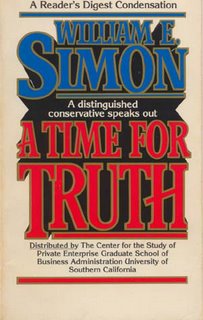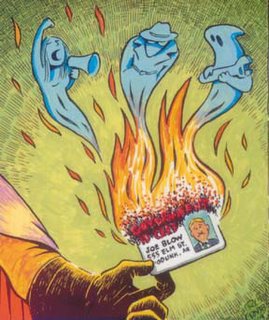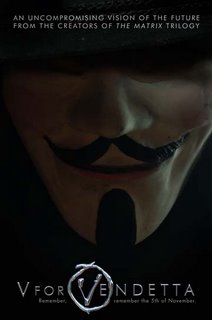Claire on insights and and the need for time away
I dare ya.
... and the clocks were striking thirteen. REFUSE TO BE AFRAID. Free yourself. Dream.
 I'm not sure whether to be excited to find a book that articulates so well what's wrong with America today, or discouraged because the book was written in 1978 and The Vast Machine has had 28 more years to forge the economic chains that bind us to dictatorship. As usual, perhaps irrationally, I choose to be excited.
I'm not sure whether to be excited to find a book that articulates so well what's wrong with America today, or discouraged because the book was written in 1978 and The Vast Machine has had 28 more years to forge the economic chains that bind us to dictatorship. As usual, perhaps irrationally, I choose to be excited.Labels: book report
 "Freedom is the freedom to say that two plus two make four. If that is granted, all else follows." - from the diary of Winston Smith
"Freedom is the freedom to say that two plus two make four. If that is granted, all else follows." - from the diary of Winston Smith I've been having fun and taking liberty for granted. I have an optimistic streak that is based in part on a conviction that I'm preaching to the converted; that even those who encounter me outside of the freedom blogs, in the pages of the publication I'm associated with under a different name, agree with me in their heart of hearts that good old American Don't-Tread-On-Me freedom is a sacred thing worth preserving. As long as the First Amendment exists, I'd be cool.
I've been having fun and taking liberty for granted. I have an optimistic streak that is based in part on a conviction that I'm preaching to the converted; that even those who encounter me outside of the freedom blogs, in the pages of the publication I'm associated with under a different name, agree with me in their heart of hearts that good old American Don't-Tread-On-Me freedom is a sacred thing worth preserving. As long as the First Amendment exists, I'd be cool.Labels: book report
 I've made a few small changes to the sidebar, most notably adding some music sites and shrinking the comics pages to my daily must-reads and the two best comics sites, Comics.com and uComics.com, so you can browse for your own favorites.
I've made a few small changes to the sidebar, most notably adding some music sites and shrinking the comics pages to my daily must-reads and the two best comics sites, Comics.com and uComics.com, so you can browse for your own favorites. I swear, your honor, for a little while Wednesday CNN's story had the headline "Bush calls for end to cartoon violence." It was hysterical despite the awful reality of the story.
I swear, your honor, for a little while Wednesday CNN's story had the headline "Bush calls for end to cartoon violence." It was hysterical despite the awful reality of the story. At first I thought it was a remake of the famous Macintosh Super Bowl ad with its vision of a dark totalitarian future. But a few seconds in, I sat up in my seat and said, "Hey! It's a trailer for V for Vendetta!"
At first I thought it was a remake of the famous Macintosh Super Bowl ad with its vision of a dark totalitarian future. But a few seconds in, I sat up in my seat and said, "Hey! It's a trailer for V for Vendetta!" After all that sneering I did about the State of the Union address, Tuesday night I worked late, missed "American Idol" completely and listened to most of the address while driving home. That's some sort of poetic justice.
After all that sneering I did about the State of the Union address, Tuesday night I worked late, missed "American Idol" completely and listened to most of the address while driving home. That's some sort of poetic justice. I suspected as much!
I suspected as much!Labels: book report